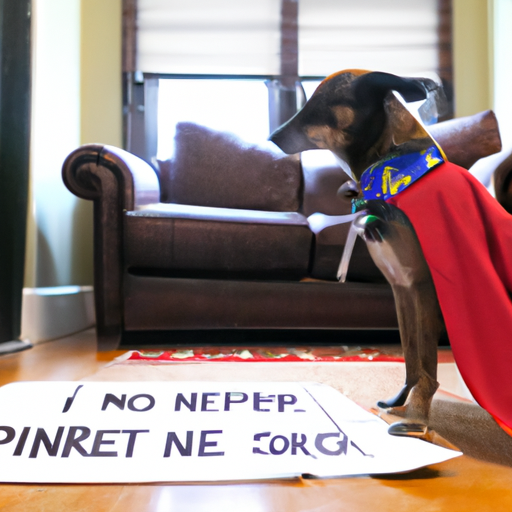Understanding the Issue
First and foremost, it’s important to understand that your dog isn’t peeing in the house to spite you. Dogs don’t think in those terms. There could be several reasons behind this behavior:
- Medical issues: Conditions like urinary tract infections (UTIs) or kidney disease could cause your dog to urinate more frequently.
- Behavioral issues: Stress, anxiety, or changes in the environment could lead to inappropriate urination.
- Lack of training: If a dog hasn’t been properly house-trained, it may not know that it’s supposed to pee outside.
Identifying the Cause
To identify the root cause, you might need to play detective for a bit. Keep a close eye on your dog and note when and where the accidents occur.
- Timing: Is it happening at a specific time of day or after certain activities?
- Location: Is there a particular spot in the house your dog seems to prefer?
- Frequency: How often is your dog peeing in the house?
Keeping a journal with these details can help you to identify patterns and possible triggers.
Seeking Professional Help
If the inappropriate urination continues despite your best efforts, it’s time to consult with a professional. A visit to the vet can rule out any medical issues.
| Professional | Role |
|---|---|
| Veterinarian | Can conduct tests to rule out medical issues. |
| Dog Trainer | Can help with house-training and behavioral modification techniques. |
| Animal Behaviorist | Can provide insight into behavioral issues and suggest appropriate interventions. |
Implementing House-Training Techniques
If the issue is not medical, then it may be time to revisit house-training. Here are some tips:
- Establish a routine: Regular feeding times and potty breaks can help regulate your dog’s system.
- Use positive reinforcement: Reward your dog for peeing outside with treats, praise, or playtime.
- Limit access to the house: Gradually increase your dog’s access to the house as they learn to control their bladder.
Maintaining Patience and Consistency
Remember, you’re in this for the long haul. Changes won’t happen overnight, and there will be setbacks. The key is to remain patient and consistent. Consistency will help your dog understand what is expected of them, and patience will help you to manage your expectations.
FAQs
Q: Can a dog that has been house-trained start peeing in the house again?
A: Yes, changes in the environment, stress, or medical issues can cause a previously house-trained dog to start peeing in the house.
Q: How can I discourage my dog from peeing in the house?
A: Regular potty breaks, positive reinforcement for peeing outside, and limiting access to the house can help.
Q: Can older dogs be house-trained?
A: Yes, older dogs can learn new tricks. It might take more time and patience, but it’s definitely possible.
Remember, it’s not about punishment but understanding and guiding your furry friend towards better habits. Good luck, and remember, every pup is worth it!



